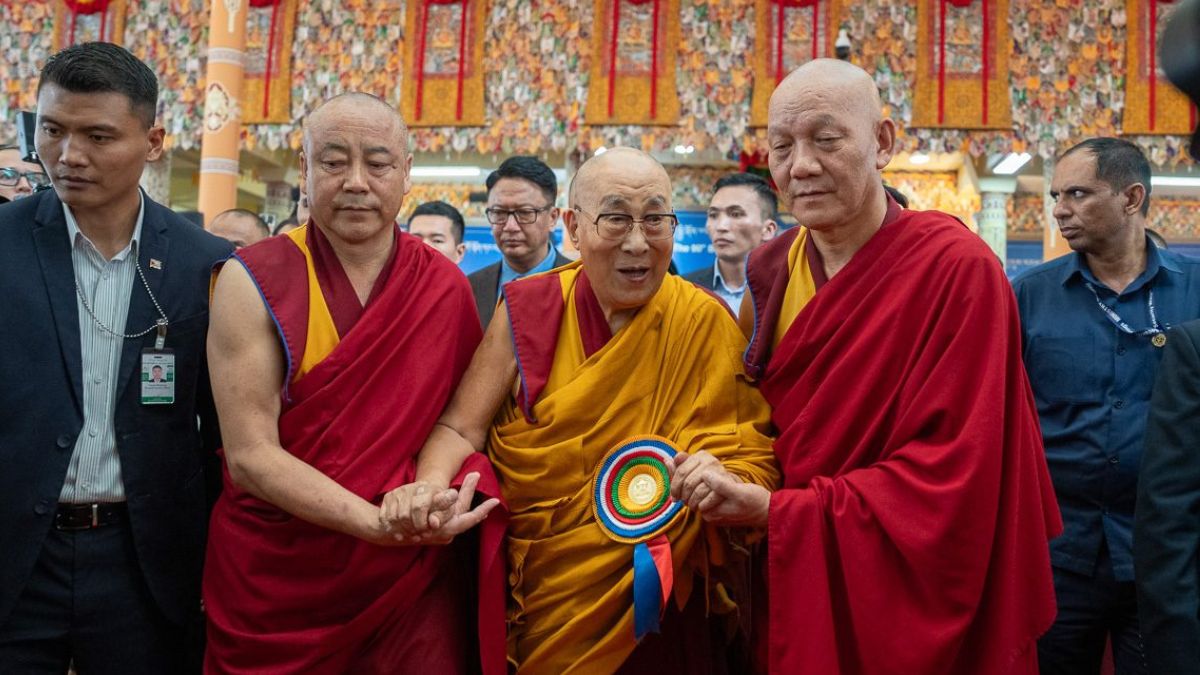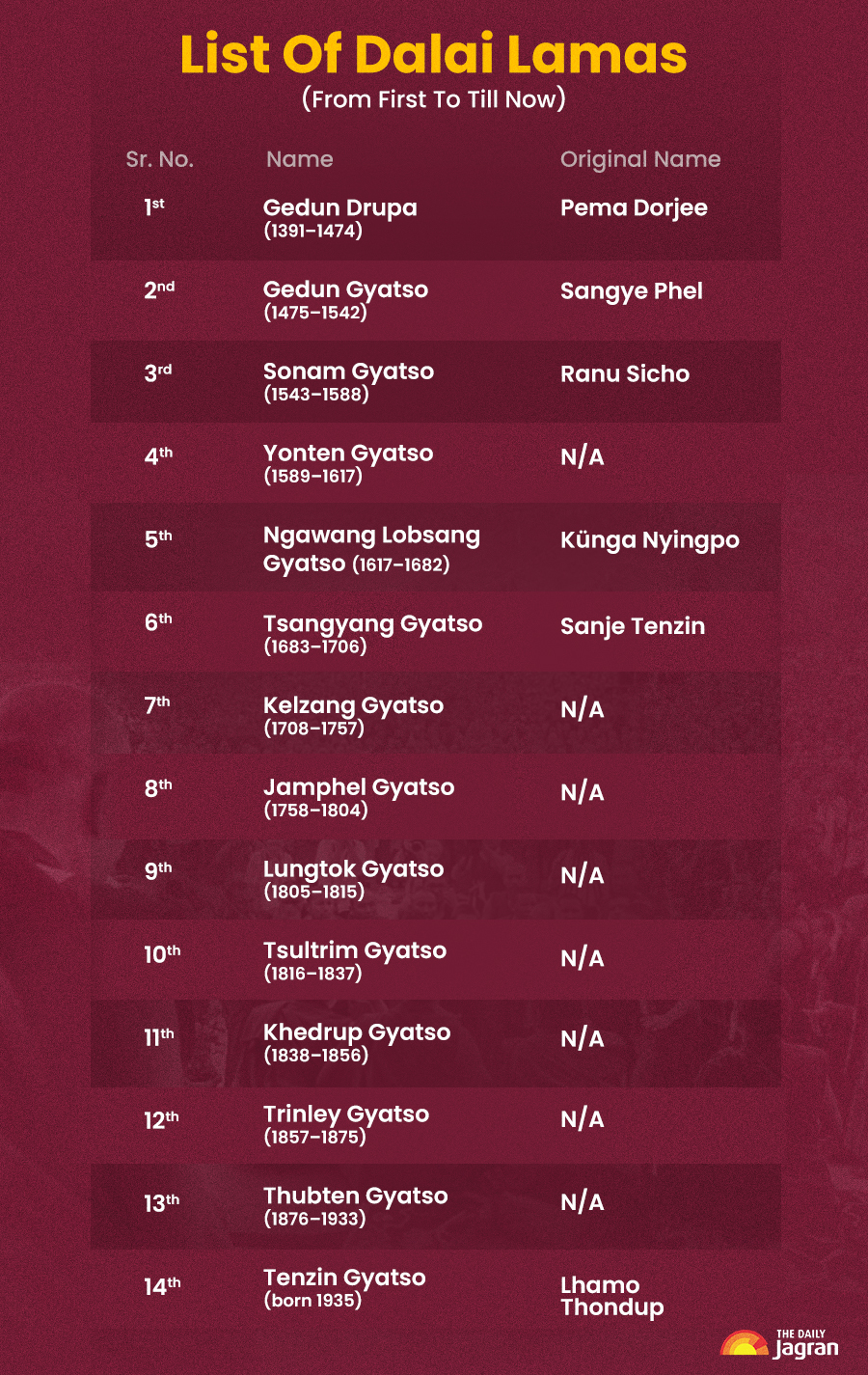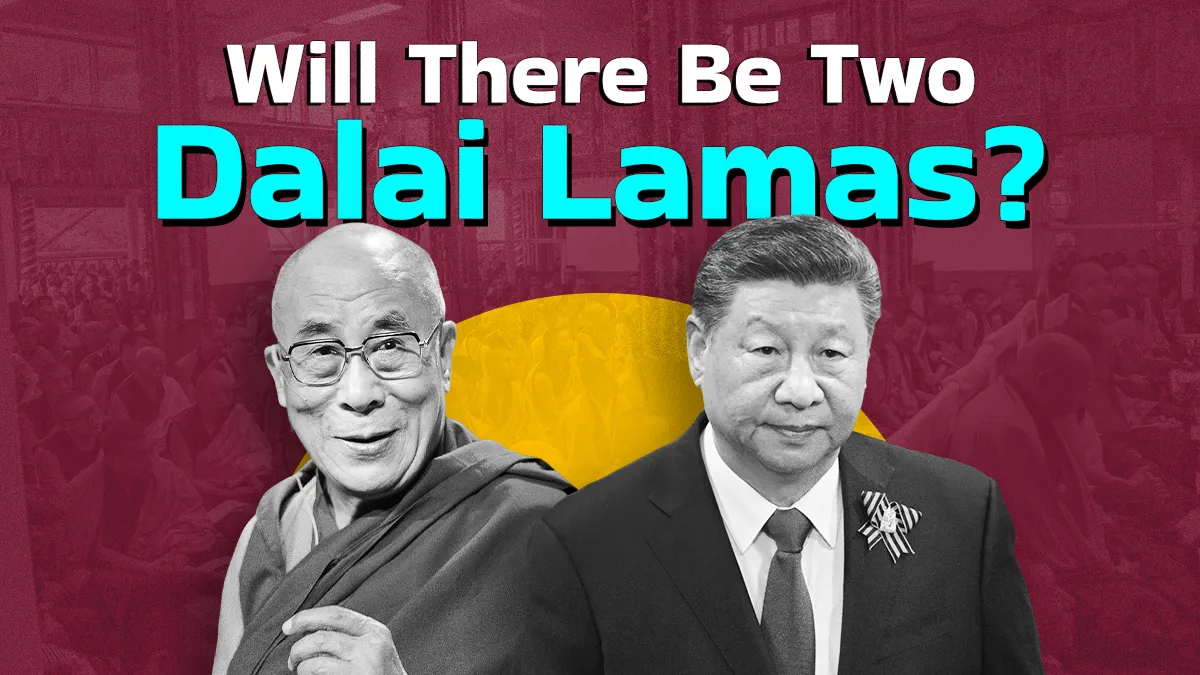- By Akansha Pandey
- Thu, 03 Jul 2025 08:19 PM (IST)
- Source:JND
Tibetan spiritual leader, the Dalai Lama, stirred up a fresh tussle with China after he announced his decision to elect his successor, putting an end to speculations of him being the last Dalai Lama. The Buddhist leader on Wednesday said the centuries old Tibetan Buddhist Institution will continue after his death. The next Dalai Lama, he said, would be named by the Gaden Phodrang Trust in accordance with past Buddhist traditions, while firmly indicating that China’s intervention in the process will not be accepted.
China in turn made its stand clear regarding the reincarnation and said that the 15th Dalai Lama will be appointed by the Central Government. Chinese foreign ministry spokeswoman Mao Ning said that the selection of the Dalai Lama and the Panchem Lama should be done through drawing lots from a golden urn and should be approved by the central government. Mao said, "The Chinese government implements a policy of freedom of religious belief, but there are regulations on the ways of managing religious affairs and the reincarnation of Tibetan living Buddhas."
The Dalai Lama vs China
The politics over the issue of the Dalai Lama's selection heated up when the Dalai Lama made it clear in a prayer ceremony on the eve of his 90th birthday that only Gaden Phodrang Trust has the right to find his successor and no one else can choose his successor. He also appealed to his followers that if the Chinese government chooses a successor, they should not accept it.

(The Dalai Lama in prayer ceremony on the eve of his 90th birthday. Image: dalailama.com)
Politically, the Dalai Lama's succession plan is important to most Tibetans, who oppose China's tightening control over Tibet and have struggled to keep their identity alive in their homeland or in exile. And religiously, it holds significance for Tibetan Buddhists, who worship him as a living manifestation of Chenrezig, the Buddhist deity of compassion.
However, China has continuously asserted its sole right to authorise the electing of the next spiritual leader. It insists that the reincarnated figure must be found in Tibetan areas of China, giving communist authorities the power to decide who is chosen.
What Is Gaden Phodrang Trust
The term Gaden Phodrang refers to the residential quarters of the Dalai Lama lineage from the second Dalai Lama onward at Drepung Monastery in Lhasa. This trust was established in Dharamshala in 2011, with the purpose of recognising the reincarnation of the Dalai Lama. The trust operates out of the Dalai Lama's office. It is overseen by Prof Samdhong Rinpoche, a senior monk and a close aide to the Dalai Lama, who is also the former Kalon Tripa (head of the CTA).
According to the Central Tibetan Administration (CTA), The Gaden Phodrang Trust is one of three institutions associated with the Dalai Lama. Other two are — The Dalai Lama Trust and Gaden Phodrang Foundation.
The Dalai Lama is the founder and president of the foundation, and Tseten Samdup Chhoekyapa from India, Kelsang Gyaltsen from Switzerland and Jamphel Lhundup from India, are its co-vice presidents.
China On Next Dalai Lama
China has never hidden its intention to identify its own Dalai Lama candidate using state-controlled religious channels. Although it has never appointed any Dalai Lama before, Beijing has repeatedly indicated, especially through a 2007 regulation, that it intends to name a successor after the passing of the 14th Dalai Lama. However, the Gaden Phodrang claims exclusive spiritual and historical legitimacy in the succession process.
The Chinese government's perspective is different. Beijing claims the authority to be involved in all religious matters, including reincarnations. This claim is based on a 1793 Qing dynasty decree that introduced the Golden Urn system—a lottery-based method for selecting reincarnated lamas. Although it may have been rarely used historically, China now insists that it should be the only permitted method.
In 2007, the Chinese State Administration for Religious Affairs issued a directive stating that all reincarnations of Tibetan Buddhist leaders must be recognised by the state. This legal framework effectively bars any competitor from gaining recognition in China without the Communist Party's permission. The Dalai Lama has clearly corrected this, stating that his reincarnation will occur in a "free country" outside of Chinese jurisdiction.

11th Panchen Lama Mystery
The roots of the conflict between the Dalai Lama and China lie in historical precedents. In 1995, the Dalai Lama had identified a six-year-old boy as the 11th Panchen Lama—the second-highest-ranking figure after him.
Born in April 1989, Gedhun Choekyi Nyima was named the 11th Panchen Lama. Three days after the announcement, on May 17, 1995, Chinese authorities reportedly took Gedhun and his family. They have not been seen since. It's been 30 years but nobody knows about Gedhun Choekyi Nyima and his family.
Beijing had not approved of the choice. A few weeks later, China appointed its own Panchen Lama, Gyaincain Norbu.
To this day, the Tibetan community in exile recognises Gedhun as the true Panchen Lama, while the Chinese state promotes the one it selected.
Why did the Dalai Lama Stay In India?
The Dalai Lama had to leave his homeland and take refuge in India in 1959. After increasing tensions and unsuccessful protests with the Chinese authorities who claimed control over Tibet, the Dalai Lama was forced to leave Tibet. At that time the Indian Government gave him political refuge in Dharmasala of Himachal Pradesh and from there he established the resident Tibetan Government there. Under the guidance of Jawahar Lal Nehru, India welcomed the Dalai Lama and his disciples. In the hills of Dharamsala, the resident democratic government, Kendriya Tibetan Administration, became its headquarters. From here the Dalai Lama advocated for a peaceful solution of Tibetan issues and also worked to popularise Tibetan identity, culture and religion.
The Dalai Lama's arrival in India had a significant impact on the relations between China and India. Beijing sees the Dalai Lama as a separatist and is constantly opposed to his stay in India. Despite the challenges, the Dalai Lama has been expressing his support for the people and government of India and he considers India as his second home where he can practice and preach Buddhist religion and teachings independently.
Union ministers Kiren Rijiju and Rajiv Ranjan Singh are set to attend the 90th birthday celebrations of the Dalai Lama in Dharamshala. Rijiju will visit the hill town on Friday ahead of the official ceremony amid growing interest in the sensitive issue of succession of the Tibetan spiritual leader.
On China’s statement of electing its own Dalai lama, Kiran Rijiju said, “No one has the right to interfere or decide who the successor of His Holiness the Dalai Lama will be. Only he or the institution has the authority to make that decision. His followers believe that deeply. It’s important for disciples across the world that he decides his succession.”

